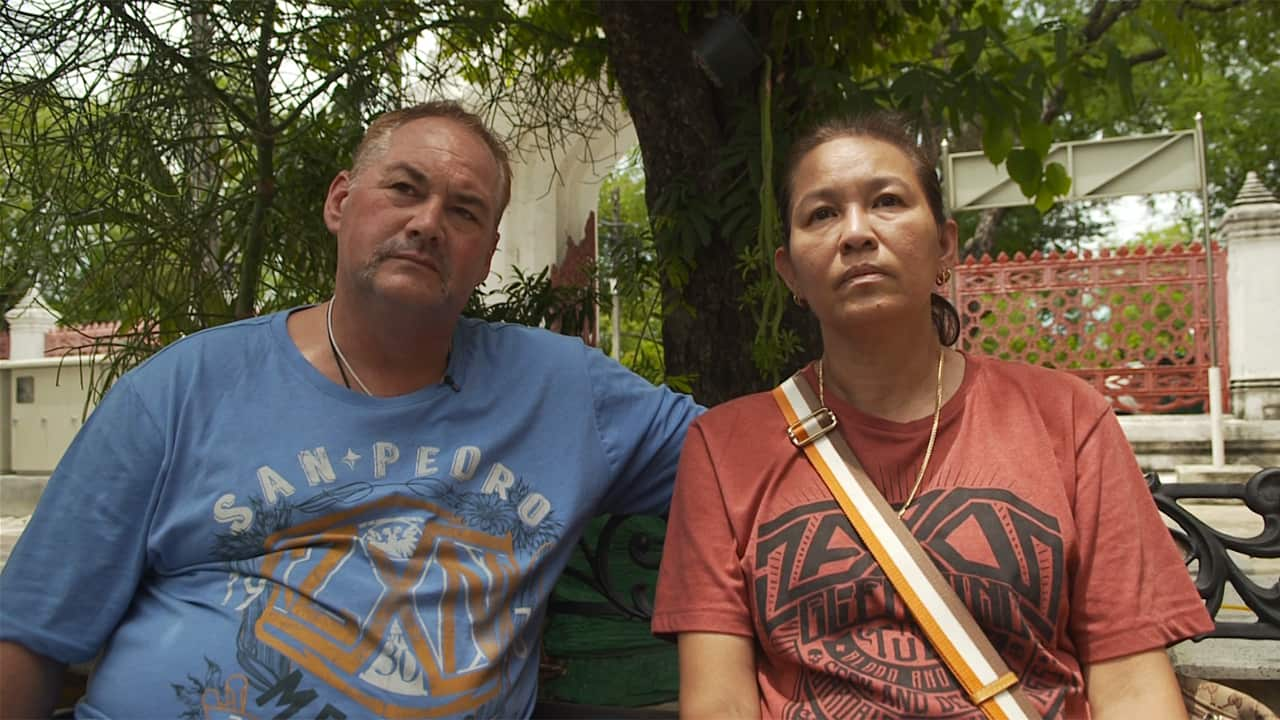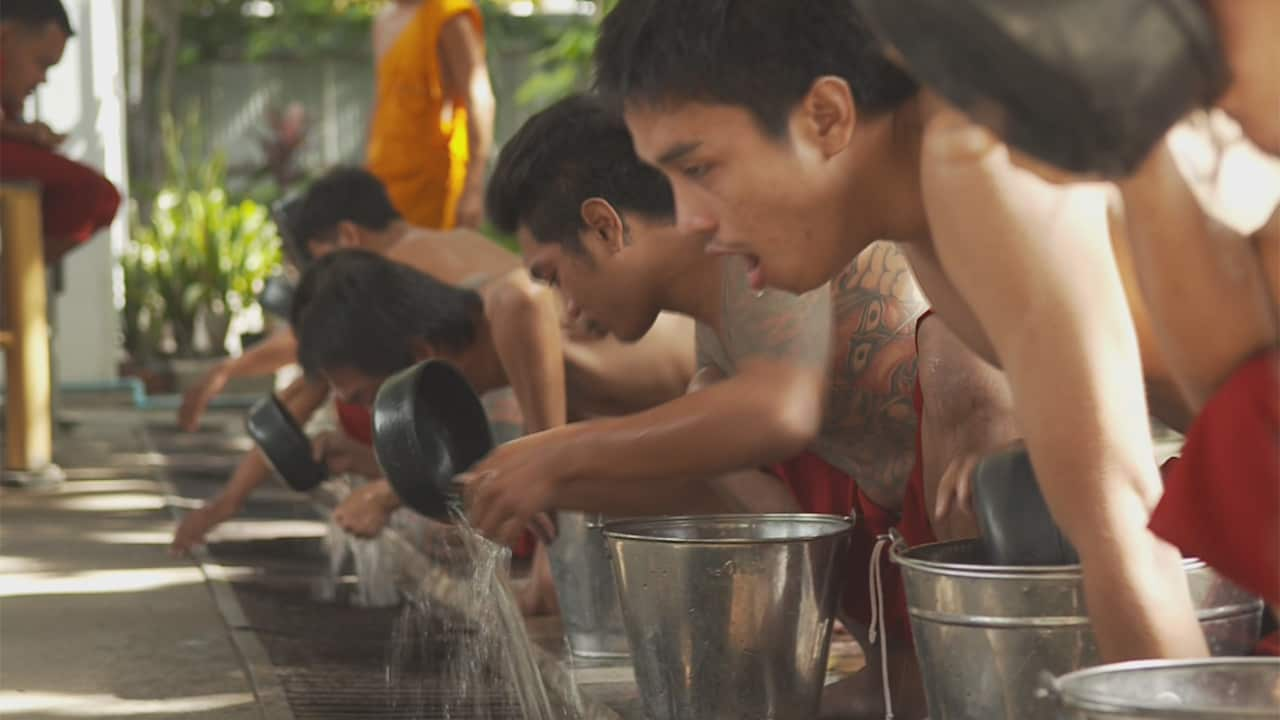Life before Wat Thamkrabok was full of guilt, lies, deception, addiction - all the things that go with using meth. Amazing highs and desperate lows that no one can understand, unless you have life within its grip.
My wife caught me using one Sunday. I was shocked by the look of fear and uncertainty on her face. She took my hand and said ‘give me the drugs, I will help you and l will stick by you no matter what.’
I had her in one hand and the drugs in the other. It was then I made the decision to give it up.
She contacted her family in Thailand almost instantly. When they heard about my addiction they rallied around me to help me. My wife's sister-in-law said ‘bring him to Thailand and we will take him to Thamkrabok.’
A few weeks later I quit my job and found myself on my way to Thailand’s Thamkrabok temple – famed for curing people of their addictions through a vomit therapy – and it’s there that Dateline’s story follows me through this extreme treatment.
All Thai people know about the Thamkrabok temple, if you have drug problems - that’s where you go. And you are taken there by your family.
Anyone outside of Thailand has to contact the temple to make arrangements should they choose detox at Thamkrabok.
I was a bit nervous, apprehensive, out of my comfort zone. But you’ve got to step out if you want to get off drugs. You can’t be afraid, you’ve to keep moving forward.
As soon as you arrive you must take a vow, called the ‘Sajja’. Sajja in Thai means making a commitment to yourself.
You recite vows told to you by the Sajja monk. You say them out loud in front of the founders, the monk and the temple – committing to get clean.
There is a belief in Thailand that breaking the Sajja is very dangerous. It’s thought that if you break that promise, you’ll be back on the old path that will this time lead you to your end.
It’s free to come here but you only get one chance at Thamkrabok. There are no second chances. So if you decide to come here, you’ve got to commit to giving up drugs for the rest of your life.

After you’ve taken the Sajja, you are then taken to the detox yard where the living quarters are. The minimum stay for people who have come abroad is seven days. You are completely cut off from contact with the outside world until the week has passed.
The routine at the temple involves going out to the yard to help with daily tasks, meals and then, of course, there’s the vomiting.
Vomiting is at 3pm every day. Foreigners must vomit for the first five days. The vomiting is intense.
The mixture the monk gives you tastes horrible - it’s pretty rank. It looks shocking and it’s very sort of pepper hot.
I wouldn’t have a clue what’s in it, but you just knock it back and then start drinking as much water as you can, more is better. It just upsets your stomach and you’ll vomit – a lot.
The first two days were hell, you just want to leave and you’re left feeling sick all the time. But I would recommend to anyone that comes here just stick with it.
And there’s plenty of help. Everyone will help you, the Thais encourage you and help you and make sure you’re okay.
After you finish the vomiting ritual each day you don’t want to do much, you just lay around and grizzle and moan.
By day five of vomiting it got easier. I think it’s just ridding yourself of the negativity really, within yourself. I think it’s maybe it’s a bit of a metaphor for acknowledging that you’re expelling the badness out of yourself.
But it must have some sort of medical like powers... I definitely felt better after the five days.

This wasn’t the first time I’d ever been to a detox centre - I’ve tried numerous times to kick the meth on my own. You need to make that heart decision to stop drugs. It’s got to come from within.
The main thing I took away from Thamkrabok was time. Time to do nothing and just reflect. There were no phones and no contact with the outside world - just you and your thoughts.
It really forced me to take the time to reflect on what I had been doing to myself and my family – it was the realisation of taking responsibility for what I had done.
I’ve learned to accept responsibility for myself. I’ve learned to keep my commitments. When I say I’m going to do something, work to stay the course. You find a sort of clarity within yourself to find a way to walk on... to walk away from the drugs.
See Steve's full story in Dateline's Last Resort Rehab:
Help and Support
The Australian Government National Drugs Campaign has more details of where to find help and support, or phone one of the following helplines:
- Counselling Online: 1800 888 236
- Kids Helpline: 1800 55 1800
- Family Drug Support: 1300 368 186
- Lifeline: 13 11 14
More
Dateline is an award-winning Australian, international documentary series airing for over 40 years. Each week Dateline scours the globe to bring you a world of daring stories. Read more about Dateline
Have a story or comment? Contact Us


